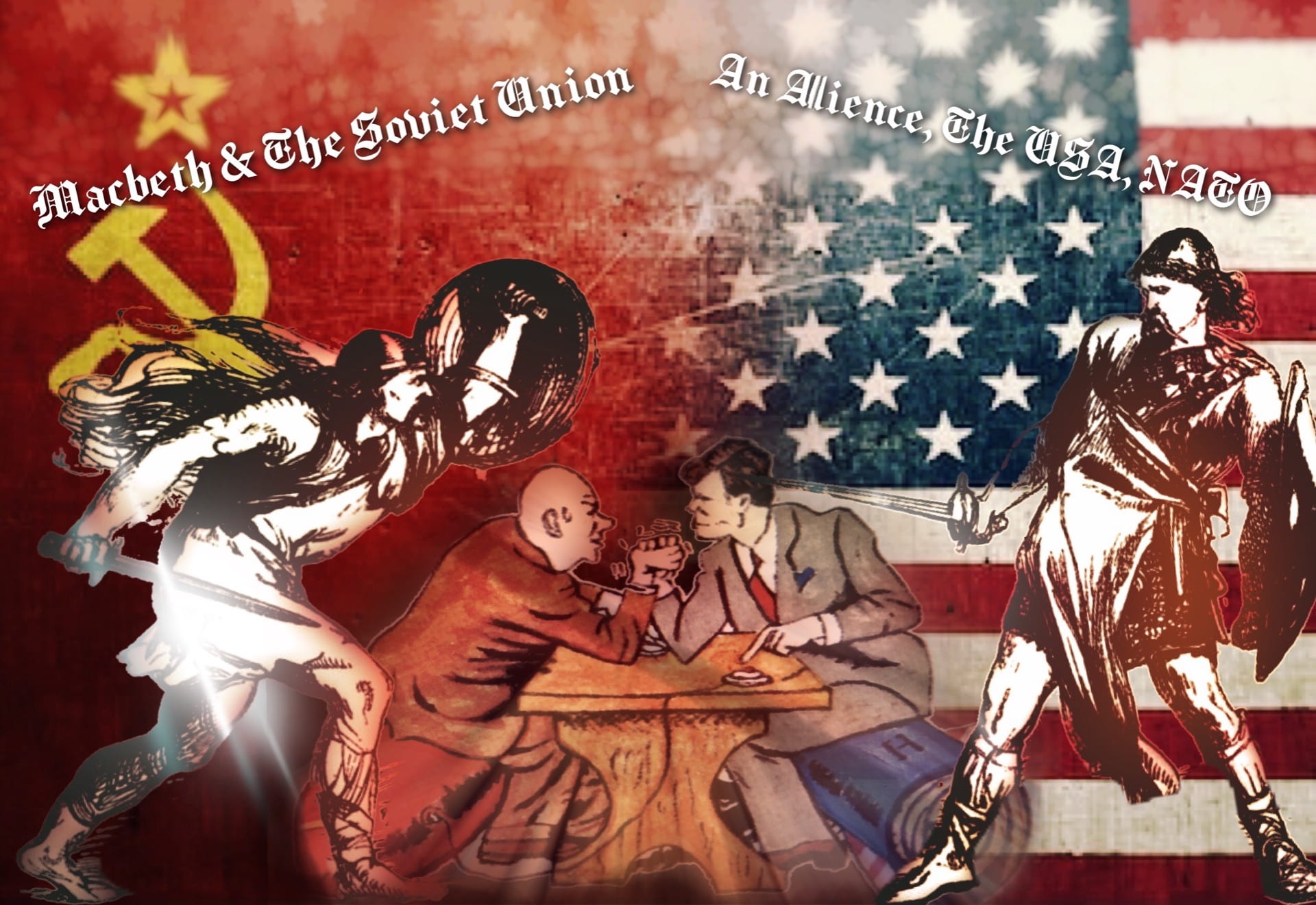This week I learned about many different aspects of our new, Macbeth: Hide Your Fires unit. This project was introduced a week and a half ago, and covers many different topics. One of the main areas of study in this unit is the Shakespeare play and namesake Macbeth. This unit also covers the late 1940s-1950s, focusing on the Cold War and starting where our learning ended in the Manhattan Project^2. As you will see in the coming weeks, the TWIL (this week I learned) post will recap my learning for the week, and provide a conection between these two topics.
First Perception of Macbeth:
By the time this project was officially introduced to our class, I was already incredibly excited about contributing to the class “Macbeth” movie hinted weeks before. I had never done any research into Macbeth, which to me was quite surprising since I enjoy speaking and listening to Shakespeare. Originally my thoughts on creating the movie were based on a more innocent perception of Macbeth. As I read and interpret the text, this notion becomes more and more fleeting. It turns out that a large portion of Macbeth is disturbingly descriptive and incredibly obscene. You wouldn’t have a play if you took out all of the sexual references and gory killings. In fact, the main reason the original audience went to see the play is because of these said elements.
Symbolism in Macbeth:
I also found that this unit reminds me of a lot of our symbolism lesson in the Lord of The Flies, mostly because there seems to be deeper meanings behind everything. Even though we haven’t focused on the themes of Macbeth, we have learned a lot about what influenced Shakespeare while writing the play. A good example of this is his constant sexual referencing. In most cases, where this theme doesn’t directly add to the story, Shakespeare is pitching to a audience that was more open about crude sexual content that we are today. The scenes that make me feel a little uncomfortable are probably the ones that got the biggest outroar back in the late 1400s to early 1500s.
Paradox in Macbeth:
We also learned about one of the most apparent poetic devices in Macbeth, the paradox. This can clearly be seen in lines like, “Fair is foul and foul is fair,” and “When the battle lost and won.” We have learned that a paradox is a seemingly absurd or self-contradictory statement, that when investigated or explained may prove to be true. Shakespeare’s uses of paradox hide a deeper meaning or truth from the listener, one that as a class we have been working hard to uncover.
1950s and Connections to Past Projects:
Most recently we have begun to learn about the historical side of this unit. As I mentioned previously, we are starting from where we left off, which in this case is the end of WWII and the beginning of the Cold War. In our summer reading book The Age Of Radiance, by William Golding, I was given a slight glance into what our class would be eventually learning, the start of the Cold War. Along with any prior knowledge, The Age of Radiance, was instrumental in explaining how we got there. It has been very interesting in some ways to read the “next chapter” in this large book of our history. I found that in this past week there has been a lot of learning in a small amount of time, and to be honest I’m not complaining.
Evidence:
The main question we have been asked in class is, “Why are the 1950s and the play Macbeth being taught together, and what similarities might they have?” I realized early on that the 1950s were a very important and crucial time in our history. There were many different world-changing events that happened on a daily basis, and many important decisions consantly being made. One strong connection I have found between these two subjects is the political decision making.
In some ways, Macbeth and the Soviet Union can be compounded to exhibit an ambitious and power-hungry vessel. Where on the other hand I could see a possible alliance in the play coupled with the NATO alience. Macbeth could easily share moments of political outbursts with our history, creating an ongoing analogy that helps to explain the influence behind the actions of our past political leaders. These two subjects also provide a large amount of learning material. This can help to sophisticate a unit and create a better for the students. I’m quite interested in what the rest of this unit has to offer, and what connections I will be able to make in the coming weeks.
Citations:
SparkNotes, SparkNotes, www.sparknotes.com/shakespeare/macbeth/themes/. Accessed Mar 4, 2020.
Jamieson, Lee. “How Ambition Causes Macbeth’s Downfall.” ThoughtCo, ThoughtCo, 20 Sept. 2019, www.thoughtco.com/ambition-of-macbeth-2985019. Accessed Mar 4, 2020.
History.com Editors. “NATO.” History.com, A&E Television Networks, 14 Apr. 2010, www.history.com/topics/cold-war/formation-of-nato-and-warsaw-pact. Accessed Mar 4, 2020.
“USSR and PRC Sign Mutual Defense Treaty.” History.com, A&E Television Networks, 13 Nov. 2009, www.history.com/this-day-in-history/ussr-and-prc-sign-mutual-defense-treaty. Accessed Mar 4, 2020.





